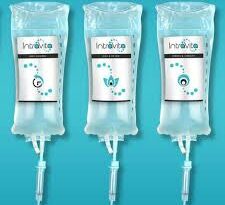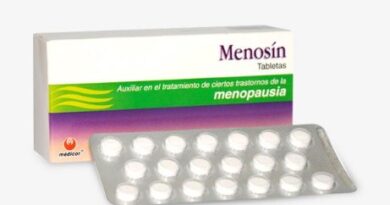What Vitamin D Dosage Is Best?
Vitamin D is one of the most essential nutrients for our overall well-being. It plays a vital role in supporting bone health, immune function, and mood regulation. While the body naturally produces vitamin D when exposed to sunlight, many people don’t get enough from sun exposure or their diet alone, making supplementation important. But the question remains: What vitamin D dosage is best for optimal health?
In this comprehensive guide, we’ll dive into the science of vitamin D, its benefits, and how to determine the right dosage for different individuals. We will also touch upon the practical aspects of supplementation, such as the potential benefits of vitamin D injections and the role of supplements like GI Revive powder, which can support gut health and overall well-being.
Understanding Vitamin D and Its Benefits
Vitamin D is a fat-soluble vitamin that exists in two main forms: vitamin D2 (ergocalciferol) and vitamin D3 (cholecalciferol). Vitamin D3 is the form most commonly used in supplements and is considered the more potent of the two.
The body needs vitamin D to help absorb calcium and phosphorus, both essential minerals for maintaining strong bones and teeth. Without sufficient vitamin D, bones can become brittle and weak, leading to conditions such as osteoporosis and rickets.
But the benefits of vitamin D go beyond just bone health. It has a profound impact on the immune system, helping to fight off infections and reducing the risk of chronic diseases such as heart disease, diabetes, and certain cancers. Additionally, vitamin D plays a role in regulating mood and mental health, with studies linking low levels of vitamin D to an increased risk of depression and other mood disorders.
Factors Influencing Vitamin D Dosage
The optimal dosage of vitamin D can vary depending on several factors. It’s crucial to understand these variables to determine the right dose for you.
1. Age
Age is a significant factor in determining the appropriate vitamin D dosage. As we age, our skin becomes less efficient at producing vitamin D from sunlight. Older adults are often at a higher risk of vitamin D deficiency and may need a higher dose of vitamin D.
- Infants and Children: Babies typically require about 400 IU (international units) of vitamin D per day. As they grow, their needs increase.
- Adults: For most adults, the recommended daily dose ranges from 600 to 800 IU per day, though some individuals may need more.
- Older Adults: Adults aged 70 and above may require as much as 800 to 1000 IU per day to maintain healthy vitamin D levels.
2. Sunlight Exposure
The amount of vitamin D the body produces naturally depends on the amount of sunlight exposure it receives. Factors like geographic location, season, time of day, and skin pigmentation all play a role in how much vitamin D is synthesized in the skin.
- Geographic Location: People who live in regions with limited sunlight, particularly during the winter months, may be at a higher risk for vitamin D deficiency.
- Skin Tone: Individuals with darker skin have more melanin, which can reduce the skin’s ability to produce vitamin D. Those with fair skin typically produce more vitamin D when exposed to sunlight.
3. Diet
Vitamin D is found in a limited number of foods, including fatty fish, egg yolks, and fortified foods like milk and cereal. If your diet lacks these sources of vitamin D, you may need to rely more on supplements to meet your daily requirements.
4. Health Conditions
Certain medical conditions can affect how the body absorbs or processes vitamin D, making supplementation even more critical. Conditions such as celiac disease, Crohn’s disease, and obesity can lead to a deficiency, while others, like osteoporosis, may require higher doses of vitamin D to support bone health.
- Obesity: People with higher body fat may require higher doses of vitamin D because it tends to get stored in fat cells rather than circulating in the bloodstream.
- Chronic Diseases: Those with chronic illnesses such as kidney disease, diabetes, or digestive disorders may have different vitamin D needs.
Recommended Vitamin D Dosage
The Recommended Dietary Allowance (RDA) for vitamin D varies by age and other factors. Here are the general guidelines based on age, as recommended by health organizations like the Institute of Medicine (IOM) and the Endocrine Society:
- Infants (0-12 months): 400 IU
- Children (1-18 years): 600 IU
- Adults (19-70 years): 600 IU
- Adults (71+ years): 800 IU
- Pregnant and Breastfeeding Women: 600 IU
However, many health professionals believe that higher doses may be needed for individuals with certain health conditions, those who live in regions with limited sunlight, or those with darker skin. For example, a daily dose of 1000 to 2000 IU is often recommended for adults to ensure adequate levels, especially if they are at risk for deficiency.
Vitamin D Injections: Are They Necessary?
For individuals with severe vitamin D deficiency, oral supplements may not always be effective enough to raise blood levels quickly. In such cases, vitamin D injections can provide a more immediate solution. Vitamin D injections are typically administered in higher doses and are absorbed directly into the bloodstream, bypassing the digestive system.
Injections are especially beneficial for individuals who have difficulty absorbing vitamin D from food or supplements due to digestive disorders. If you’re wondering, “Where can I find vitamin D injections near me?”, many healthcare providers offer this service, including clinics, hospitals, and specialized wellness centers.
While vitamin D injections are generally safe when administered correctly, they should only be used under the supervision of a healthcare provider, who can determine the appropriate dosage based on blood tests and individual needs.
Vitamin D and Gut Health: The Role of GI Revive Powder
The relationship between vitamin D and gut health is an area of growing interest. Research has shown that vitamin D plays a crucial role in maintaining a healthy gut microbiome, which is essential for digestion, immune function, and overall health. Poor gut health can also impact the absorption of nutrients, including vitamin D, leading to deficiencies.
This is where supplements like GI Revive powder can help. GI Revive is a supplement that supports gut health by providing a blend of ingredients designed to promote digestive health, repair the gut lining, and improve nutrient absorption. By supporting the digestive system, GI Revive can potentially enhance the body’s ability to absorb vitamin D from both food and supplements, making it a useful addition to any supplementation regimen.
Signs of Vitamin D Deficiency
Vitamin D deficiency can be difficult to detect since the symptoms are often subtle and develop gradually. However, common signs of deficiency may include:
- Fatigue or tiredness
- Bone pain or muscle weakness
- Depression or mood swings
- Increased risk of infections
- Hair loss
If you suspect you may be deficient in vitamin D, it’s essential to consult with a healthcare provider. A blood test can determine your vitamin D levels, and your doctor can then recommend the appropriate dosage of supplementation based on your needs.
How to Take Vitamin D Supplements
Vitamin D supplements come in various forms, including capsules, tablets, liquid drops, and even gummies. The best form of vitamin D supplementation depends on your personal preferences and any health considerations.
- Capsules or Tablets: These are the most common forms of vitamin D supplements and are available in various dosages.
- Liquid Drops: Liquid vitamin D is an excellent option for children or individuals who have trouble swallowing pills.
- Gummies: Vitamin D gummies are a tasty option but may not be as potent as capsules or tablets.
The fat-soluble nature of vitamin D means that it is best absorbed when taken with a meal that contains fat. Be sure to follow the dosage instructions on the supplement packaging, and consult with your healthcare provider if you’re unsure about the best dosage for your needs.
Conclusion
Vitamin D is a crucial nutrient for maintaining overall health, particularly for strong bones, a robust immune system, and mental well-being. The ideal dosage depends on various factors, including age, sunlight exposure, diet, and health conditions.
For most individuals, 600-800 IU per day is sufficient, but some may require higher doses, especially those at risk for deficiency or with specific health conditions. Vitamin D injections may be an option for those with severe deficiency or absorption issues.




